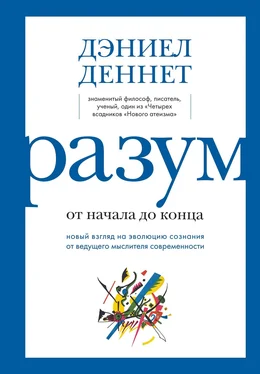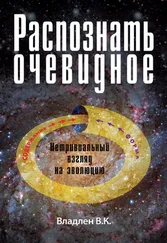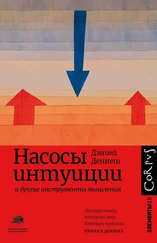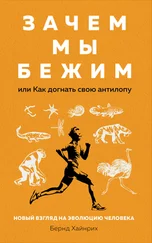–—. 2013d. “Turing’s ‘Strange Inversion of Reasoning.’” In Alan Turing: His Work and Impact, edited by S. Barry Cooper and J. van Leeuwen, 569–573. Amsterdam: Elsevier.
–—. 2014. “Daniel Dennett on Free Will Worth Wanting.” In Philosophy Bites Again, edited by D. Edmonds and N. Warburton, 125–133. New York: Oxford University Press.
–—. 2014b. “Reflections on Free Will.” Review of Free Will, by Sam Harris. Naturalism.org.
–—. 2015. “The Singularity – An Urban Legend?” In What to Think about Machines That Think, edited by John Brockman, 85–88. New York: HarperCollins.
–—. 2015b. “The Friar’s Fringe of Consciousness.” In Structures in the Mind: Essays on Language, Music, and Cognition in Honor of Ray Jackendoff, edited by Ida Toivonen, Piroska Csuri, and Emile van der Zee, 371–378. Cambridge, Mass.: MIT Press.
–—. 2015c. “Why and How Does Consciousness Seem the Way It Seems?” In Open MIND, edited by T. Metzinger and J. M. Windt. Frankfurt and Main: MIND Group. doi: 10.15502/9783958570245.
–—. 2015d. “How Our Belief in Qualia Evolved, and Why We Care So Much – A Reply to David H. Baßler.” In Open MIND, edited by T. Metzinger and J. M. Windt. Frankfurt: MIND Group. doi: 10.15502/9783958570665.
–—. Forthcoming. “Jonathan Bennett’s Rationality.” In Ten Neglected Classics, edited by Eric Schliesser.
Dennett, Daniel C., and Ryan T. McKay. 2006. “A Continuum of Mindfulness.” Behavioral and Brain Sciences 29: 353–354.
Descartes, René. (1637) 1956. Discourse on Method. New York: Liberal Arts Press.
–—. 1641. Meditations on First Philosophy. Paris: Michel Soly.
Diamond, Jared. 1978. “The Tasmanians: The Longest Isolation, the Simplest Technology.” Nature 273: 185–186.
Diesendruck, Gil, and Lori Markson. 2001. “Children’s Avoidance of Lexical Overlap: A Pragmatic Account.” Developmental Psychology 37 (5): 630–641.
Domingos, Pedro. 2015. The Master Algorithm: How the Quest for the Ultimate Learning Machine Will Remake Our World. New York: Basic Books.
Drescher, Gary L. 1991. Made-up Minds: A Constructivist Approach to Artificial Intelligence. Cambridge, Mass.: MIT Press.
Dyson, Freeman J. 1988. Infinite in All Directions: Gifford Lectures Given at Aberdeen, Scotland, April – November 1985. New York: Harper and Row.
Edelman, Gerald M. 1989. The Remembered Present: A Biological Theory of Consciousness. New York: Basic Books.
Eigen, Manfred. 1992. Steps Towards Life. Oxford: Oxford University Press.
Eldredge, Niles. 1983. “A la recherche du docteur Pangloss.” Behavioral and Brain Sciences 6 (3): 361–362.
Eliasmith, Chris. 2013. How to Build a Brain: A Neural Architecture for Biological Cognition. New York: Oxford University Press.
Emery, N. J. 2000. “The Eyes Have It: The Neuroethology, Function and Evolution of Social Gaze.” Neuroscience & Biobehavioral Reviews 24: 581–604.
Everett, Daniel L. 2004. “Coherent Fieldwork.” In Linguistics Today, edited by Piet van Sterkenberg, 141–162. Amsterdam: John Benjamins.
Fisher, D. 1975. “Swimming and Burrowing in Limulus anti Mesolimulus.” Fossils and Strata 4: 281–290.
Fitch, W. Tecumseh. 2008. “Nano-Intentionality: A Defense of Intrinsic Intentionality.” Biology & Philosophy 23 (2): 157–177.
–—. 2010. The Evolution of Language. Cambridge: Cambridge University Press. http://dx.doi.org/10.1017/CBO9780511817779.
Fitch, W. T., L. Huber, and T. Bugnyar. 2010. “Social Cognition and the Evolution of Language: Constructing Cognitive Phylogenies.” Neuron 65 (6): 795–814.
FitzGibbon, C. D., and J. H. Fanshawe. 1988. “Stotting in Thomson’s Gazelles: An Honest Signal of Condition.” Behavioral Ecology and Sociobiology 23 (2): 69–74.
Floridi, Luciano. 2010. Information: A Very Short Introduction. Oxford: Oxford University Press.
Fodor, Jerry, 1998. “Review of Steven Pinker’s How the Mind Works, and Henry Plotkin’s Evolution in Mind.” London Review of Books. Reprinted in Fodor, In Critical Condition. Cambridge, Mass.: Bradford Book/MIT Press.
–—. 2008. LOT 2: The Language of Thought Revisited. Oxford: Clarendon Press.
Francis, Richard C. 2004. Why Men Won’t Ask for Directions: The Seductions of Sociobiology. Princeton, N.J.: Princeton University Press.
Frischen, Alexandra, Andrew P. Bayliss, and Steven P. Tipper. 2007. “Gaze cueing of Attention: Visual Attention, Social Cognition, and Individual Differences.” Psychological Bulletin 133(4): 694–724.
Friston, Karl, Michael Levin, Biswa Sengupta, and Giovanni Pezzulo. 2015. “Knowing One’s Place: A Free-Energy Approach to Pattern Regulation.” Journal of the Royal Society Interface, 12: 20141383.
Frith, Chris D. 2012. “The Role of Metacognition in Human Social Interactions.” Philosophical Transactions of the Royal Society B: Biological Sciences 367 (1599): 2213–2223.
Gelman, Andrew. 2008. “Objections to Bayesian Statistics.” Bayesian Anal. 3 (3): 445–449.
Gibson, James J. 1966. “The Problem of Temporal Order in Stimulation and Perception.” Journal of Psychology 62 (2): 141–149.
–—. 1979. The Ecological Approach to Visual Perception. Boston: Houghton Mifflin.
Godfrey-Smith, Peter. 2003. “Postscript on the Baldwin Effect and Niche Construction.” In Evolution and Learning: The Baldwin Effect Reconsidered, edited by Bruce H. Weber and David J. Depew, 210–223. Cambridge, Mass.: MIT Press.
–—. 2007. “Conditions for Evolution by Natural Selection.” Journal of Philosophy 104: 489–516.
–—. 2009. Darwinian Populations and Natural Selection. Oxford: Oxford University Press.
Gorniak, Peter, and Deb Roy. 2006. “Perceived Affordances as a Substrate for Linguistic Concepts.” MIT Media Lab. See also Gorniak’s MIT dissertation, “The Affordance-based Concept.”
Gould, Stephen Jay. 1989. Wonderful Life: The Burgess Shale and the Nature of History. New York: W. W. Norton.
–—. 1991. Bully for Brontosaurus: Reflections in Natural History. New York: W. W. Norton.
–—. 1997. “Darwinian Fundamentalism.” Part I of review of Darwin’s Dangerous Idea, New York Review of Books, June 12.
–—. 1997b. “Evolution: The Pleasures of Pluralism.” Part II of review of Darwin’s Dangerous Idea, June 26.
Gould, Stephen Jay, and Richard C. Lewontin. 1979. “The Spandrels of San Marco and the Panglossian Paradigm: A Critique of the Adaptationist Programme.” Proceedings of the Royal Society of London, the Evolution of Adaptation by Natural Selection (Sept. 21), Series B, Biological Sciences 205 (1161): 581–598.
Graziano, Michael S. A. 2013. Consciousness and the Social Brain. Oxford, New York: Oxford University Press.
Grice, H. Paul. 1957. “Meaning.” The Philosophical Review 66: 377–388.
–—. 1968. “Utterer’s Meaning, Sentence Meaning, and Word Meaning.” Foundations of Language, 4. Reprinted as ch. 6 in Grice 1989, 117–137.
–—. 1969. “Utterer’s Meaning and Intentions.” Philosophical Review, 78. Reprinted as ch. 5 in Grice 1989, 86–116.
–—. 1972. Intention and Uncertainty. London: Oxford University Press.
–—. 1989. Studies in the Way of Words. The 1967 William James Lectures at Harvard University. Cambridge, Mass.: Harvard University Press.
Griffin, Donald R., and Carolyn A. Ristau. 1991. “Aspects of the Cognitive Ethology of an Injury-Feigning Bird, the Piping Plover.” In Cognitive Ethology: The Minds of Other Animals: Essays In Honor of Donald R. Griffin. Hillsdale, N.J.: L. Erlbaum Associates.
Griffin, R., and Dennett, D. C. 2008. “What Does The Study of Autism Tell Us about the Craft of Folk Psychology?” In Social Cognition: Development, Neuroscience, and Autism, edited by T. Striano and V. Reid, 254–280. Malden, Mass.: Wiley-Blackwell.
Читать дальше
Конец ознакомительного отрывка
Купить книгу






![Берндт Хайнрих - Зачем мы бежим, или Как догнать свою антилопу [Новый взгляд на эволюцию человека] [litres]](/books/386118/berndt-hajnrih-zachem-my-bezhim-ili-kak-dognat-svo-thumb.webp)
![Джеффри Миллер - Соблазняющий разум [Как выбор сексуального партнера повлиял на эволюцию человеческой природы] [litres]](/books/401316/dzheffri-miller-soblaznyayuchij-razum-kak-vybor-seksu-thumb.webp)




